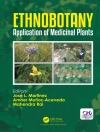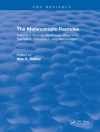In ‘The Science of Being Well, ‘ Wallace D. Wattles offers an early exploration of holistic health, intertwining psychology, philosophy, and practical advice in his distinctive, optimistic prose. Written during the early 20th century, a period marked by rapid advancements in health sciences, Wattles employs a blend of affirmative statements and rational discourse, advocating for the transformative power of positive thinking and mental discipline in achieving physical well-being. Through a methodical approach, he elucidates the interconnectedness of mind and body, inspiring readers to take charge of their health within a framework of personal empowerment. Wattles, best known for his influential work ‘The Science of Getting Rich, ‘ draws on his background in population health and metaphysical philosophy to structure this treatise. His own struggles with health and understanding of human potential deeply informed his writing. This book reflects his belief in the individual’s capacity to effect change not only in their own life but also in the world around them, emphasizing a proactive, science-based approach to wellness. For readers seeking to enhance their understanding of health from a psychological and practical viewpoint, ‘The Science of Being Well’ is an indispensable resource. Its teachings remain relevant, providing timeless wisdom for anyone striving for a holistic approach to health and wellness.
Giới thiệu về tác giả
Wallace Delois Wattles (1860–1911) was an American author known for his work in the New Thought movement, a spiritual and philosophical movement of the late 19th and early 20th centuries. He is best recognized for his magnum opus ‘The Science of Getting Rich’ (1910), but another noteworthy contribution to metaphysical thought is his book ‘The Science of Being Well’ (1910). Within the pages of this influential text, Wattles asserts that maintaining health comes from a clear understanding and application of certain universal principles. ‘The Science of Being Well’ argues for a harmonious relationship between mind and body, positing that one’s thinking directly affects physical health. This text explores the premise that individuals can achieve well-being through positive thinking and visualization, which aligns with the wider teachings typically associated with New Thought literature. Wattles’ works continue to resonate, providing the philosophical groundwork for the law of attraction and prosperity consciousness that are integral to many of today’s self-help and personal development teachings. Despite having passed away over a century ago, Wattles’ impact on motivational literature endures, as contemporary readers seek out his guidance on achieving personal success and a healthy state of being.












